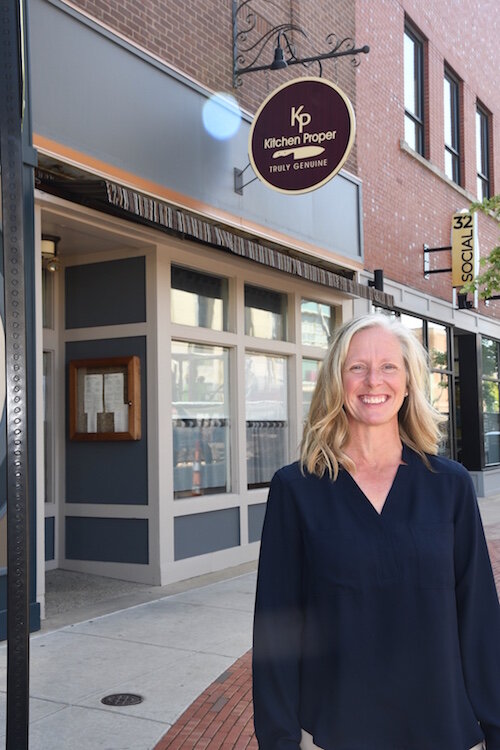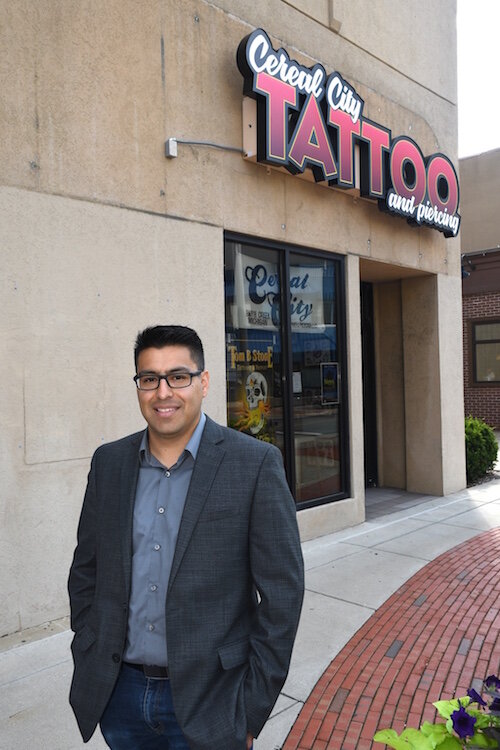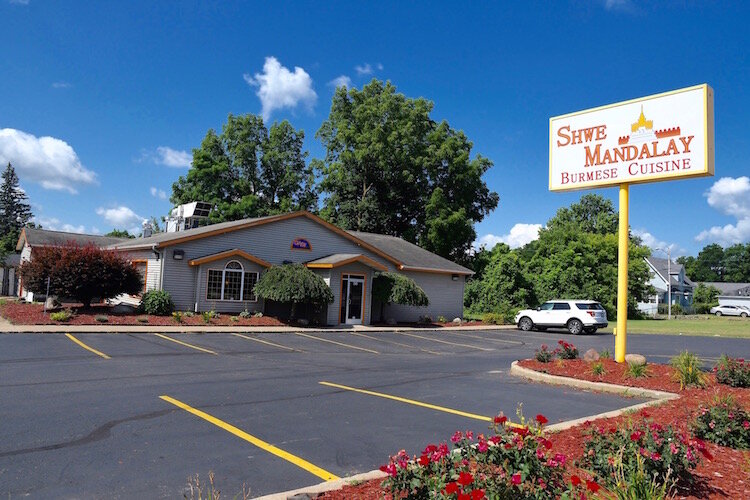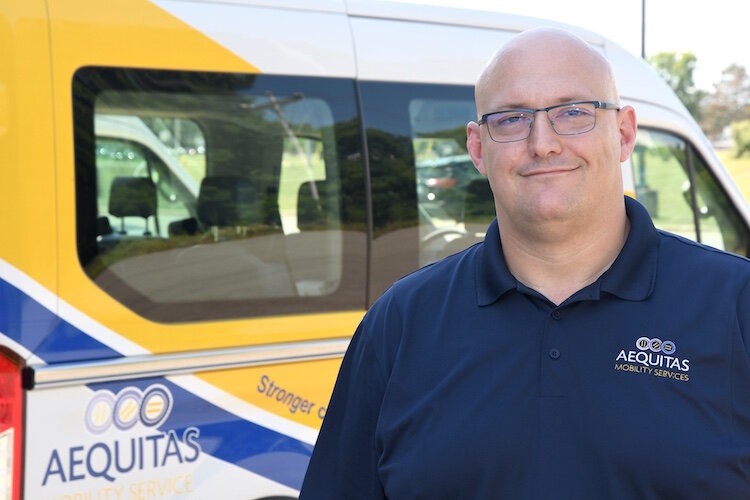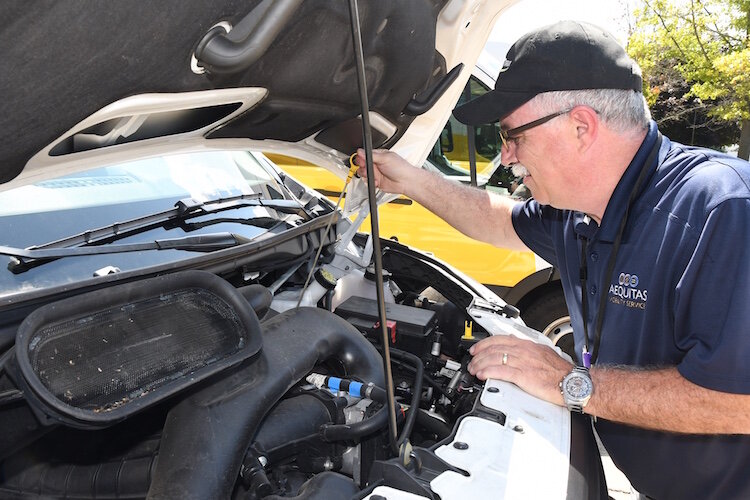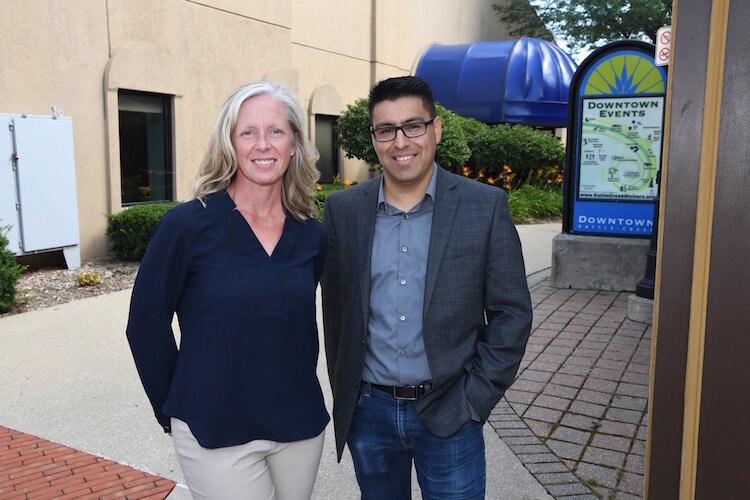Battle Creek startups have a new way to tap into money and know-how with Northern Initiatives
For startup businesses financing can be the biggest obstacle to overcome. Northern Initiatives helps would-be business owners over that hurdle and longtime businesses can get help, too.
Editor’s note: This story is part of Southwest Michigan Second Wave’s On the Ground Battle Creek series.
A nonprofit that provides transportation to area residents and a taco restaurant that offers authentic Mexican fare are the beneficiaries of an out-of-the-box lending program that is willing to take a leap of faith along with the budding entrepreneurs who seek their financial support and technical expertise.
Since opening its doors in 2018 in downtown Battle Creek, Northern Initiatives has made loans totaling about $1.5 million to help 10 different entrepreneurs realize their dream of owning their own businesses. The loans made so far have come out of a $10 million loan fund for small businesses in Battle Creek created in 2018 by the W.K. Kellogg Foundation. The loan program is managed by the Marquette-based Northern Initiatives, a community development financial institution that focuses on startups, women-owned businesses, and underserved communities.
Northern Initiatives was selected to do this work in Battle Creek because it already had a relationship with the Kellogg Foundation, says Kelly LaDuke Hoffman, commercial lender for Northern Initiatives here.
“They knew we had a track record and that we’d been doing this type of work for 26 years in a number of different communities,” Hoffman says. “Instead of trying to find somebody else or starting a new organization to run it, they selected us.”
Scott Cubberly, owner of Aequitas Mobility Services located on Dickman Road, says there’s no way he could have opened the business in January of this year without the $220,836 loan he received through Northern Initiatives.
“I spent the majority of 2018 trying to raise capital to acquire vans to be able to do the work and without Northern Initiatives’ investment, I would not have been able to launch the business. That was a key piece to get us going,” Cubberly says.
Aequitas, named for the Latin word for equity, provides rides to people throughout the Battle Creek area who have no other means of transportation. They operate three sprinter vans, one of which has a wheelchair lift, that were converted to be ADA accessible. The vans run 24-hours a day Monday through Friday with limited access on the weekends. The rides are scheduled around second and third-shift changes at local businesses.
By the end of July, Aequitas will have provided 3,000 rides to people who need to get to their jobs at Fort Custer, attend classes, get to the grocery store or job interviews, or require non-emergency medical transport.
Riders pay $7 for a one-way trip, but that cost is currently being reassessed because Cubberly says they’re not meeting their costs. In addition to the Northern Initiatives loan, Aequitas received a matching grant and a zero-cost lease for office space from Battle Creek Unlimited and contributions from Prairie Farms and Firekeepers Casino to get closer to the $400,000 needed to open.
“Transportation needs to be subsidized to be done effectively and efficiently, especially when you look at the services we provide to people in Pennfield, Emmett, Bedford, and Springfield, in addition to Battle Creek proper,” Cubberly says. “The community needs to support this in the broader sense.”

Even though nonprofits are more difficult to fund, Hoffman says she and her colleague, Israel Flores, Northern Initiatives’ business development specialist, are open to working with anyone who is willing to develop a business plan and put in the hard work necessary to open a business.
“Our goal is to not compete with a bank,” Hoffman says. “We underwrite like a bank, but we just look at it with a more flexible eye. So somebody might have poor credit and we’ll listen to what happened and see if we can wrap our arms around it and help them.
“If they’re under-collateralized we’ll take a look at it. If the borrower needs 25 percent equity and they only have 10 percent, we can work with them. Banks have a hard time with startups because the people starting them are basing everything on a vision and hope.”
This is what Javier Fortoso was working with when he decided to open a restaurant specializing in tacos and salsas on Beckley Road. Although Torti Taco opened in 2016, Fortoso sought out a loan from Northern Initiatives to purchase additional equipment and help with cash flow. That $30,000 loan was the first one made locally by Northern Initiatives which landed him on the cover of the organization’s annual report.
“Being a small business, it was hard to keep up with everything,” Fortoso says. “They actually paid everything and everything was quick. They were very specific about the paperwork they needed from me.”
This experience differs markedly from the one he had with a bank when he sought out funding to open a second restaurant. “First they said I was approved, then they said I wasn’t, and it just didn’t work out,” Fortoso says.
Scenarios like Fortoso’s highlight the benefits of having a lending institution like Northern Initiatives in Battle Creek, says Joe Sobieralski, president and CEO of BCU.
“Battle Creek is a market in transition,” he says. “The cost of construction is constant while appraisal values are lower and not reflecting the cost of construction. All financial institutions look at all of those things and equate that to the small business lending side of the equation. That’s the benefit of having institutions working outside of the parameters of traditional lenders.
“Northern Initiatives is a Community Development Financial Institution Fund that works outside of the realm of a traditional bank or institution that doesn’t have to abide by all of the guidelines of a bank.”
BCU has committed $1.2 million to the $10 million loan fund created by the Kellogg Foundation. Sobieralski says his organization has contributed $600,000 of the total committed which was meant to be distributed incrementally.
The Kellogg Foundation gave an immediate $1 million grant to the fund so that the program could get started without waiting for funds to accumulate first. The foundation also committed to matching each $1 given to the fund with $2. A $1.8 million combined commitment from the Miller Foundation, BCU and Kellogg Co. brought the initial total of the funds to go into local businesses to $6.4 million.
Hoffman says N.I. also has partnerships with the city’s Small Business Development department and Second Muse, an organization that also focuses on entrepreneurship support in the city, because they often assist the same clients.
Cubberly says these investments are a way to jumpstart the entrepreneurial environment in the community. “A lot of people are looking to start their own businesses, but the resources are not there,” he says. “Having N.I. come in has been really key. They’ve been able to turn around some interesting loans.”
Hoffman says Northern Initiatives can make loans from $1,000 to $500,000 and has a committee that helps makes decisions about the loans. She says loans made so far have been between $30,000 and up to $300,000 and have gone to both new businesses and established businesses looking to expand.
“We’re not necessarily market experts,” Hoffman says. “We require a business plan for startups. They need to educate us about their customer base, suppliers and vendors. We want to know that they have done their homework and have thought about the viability of their business in their community. If they just need funding for new windows we may not ask for a plan.”
The diversity of businesses that have been funded by these loans, including Cereal City Tattoo, Biggby Coffee shops, and the Escape Room entertainment venue at the Lakeview Square Mall, drives home the willingness of Hoffman and Flores to work with anyone who has an idea and a willingness to make it work.
“If they want to start a business, but they have no previous experience or materials, we can show them how to do that,” Flores says. “It’s hard to put so much up for risk and sometimes people try to jump in so big and they don’t have the capacity to move forward so quickly.”
Rather than saying “no” and walking away when presented with such risk, Flores says he and Hoffman will encourage the would-be business owner to consider different options and continue the discussion when they are at a level of planning that’s better for everybody.
“Part of our mission is also to do no harm,” Hoffman says. “If saying ‘yes’ to a loan puts a family or household at financial risk, we want to make sure with underwriting, evaluations, and due diligence that we’re not going to put them under if they personally help with their business. We have opportunities to connect with financial advisors and work with bankers who are willing to offer advice.
“I said ‘no’ to a business, but it was a ‘no but’. I said, ‘why don’t you work on this and build a history of skills and come back and we can talk more.”
The majority of those seeking loans to start new businesses usually have jobs that enable them to earn an income while doing the work that needs to be done to successfully open a business.
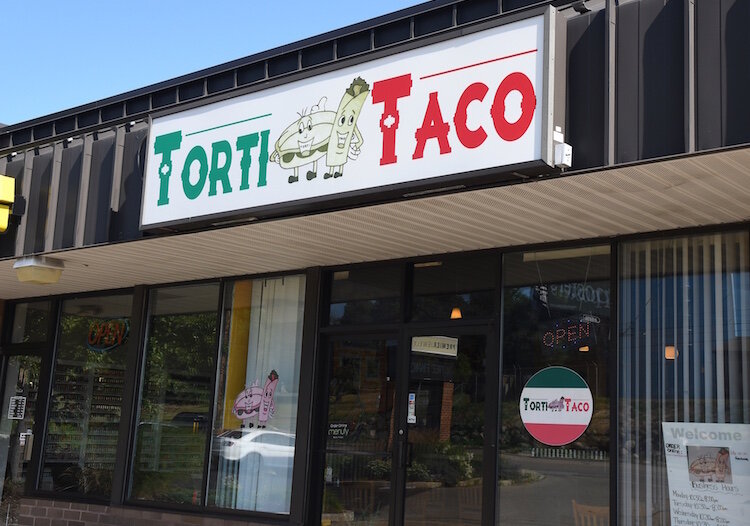
Flores says the process takes time and some people don’t understand that. “People sometimes come with an idea and they want to start their business the next month,” he says. “It takes a long time to get the loan. The process is long and takes time to work through.”
Torti Taco owner Fortoso says he began thinking about doing something different in 2014 after his daily commute from Battle Creek to Indiana where his painting business was located became too much of a grind. He had moved to Battle Creek to be with his girlfriend.
“When I worked in Indiana, I would go to these two taco places and thought something like this would be ideal in Michigan because you could get something quick and leave,” Fortoso says. “That was just in my mind, but then I went to San Diego to visit my daughter and she took me to some places and I really loved them, but they didn’t have a salsa bar. I came home and started cooking from my house and started doing different types of salsa and that’s how everything started.”
From the time Fortoso started looking for a location to the time Torti Taco officially opened was a two-year process. He says business has exceeded his expectations.
“We’ve been told by other restaurant owners that our food is more authentic,” he says. “We cook everything fresh and our salsa bar is amazing. We offer 11 different salsas like mango, pineapple, and avocado. We use our own recipes and work with local farmers.”
But, he says his recipe for success also includes the lengths that Hoffman and Flores are willing to go to help Northern Initiatives clients like him.
Flores says he spends a great deal of time making connections with the area’s different ethnic and minority communities. “We know that people are doing things in their homes or in their garages and we want to work with them if they are interested in taking their products to the next level,” he says.
“After they get the loan our organization provides services to clients for free because those services are expensive,” Hoffman says. Many of these services are available online and cover a whole host of issues for owners of startups, including accounting, marketing, and management.
“We do a combined technical assistance program licensed in 36 states through CDFI articles and videos and templates,” Hoffman says. “They may need to find a better way to understand cash flow so we’ll tell them to look at articles and templates to better understand the lingo and understand why it’s important have that background. It makes face-to-face meetings more meaningful.”
In addition to the online resources, Northern Initiatives also has local business people who offer their expertise to clients. These more established businesspeople understand the importance of what Northern Initiatives is attempting to do.
“There’s only so many ways for an individual to create wealth for themselves, owning a home, starting a business and having a good education are some of them,” Hoffman says. “Small businesses create opportunities to strengthen the community and create diversity and vibrancy and wealth for business owners and wealth for employees.
“When you look at how many jobs they contribute to the community, it’s pretty staggering and it’s a huge component of the local economy.”

